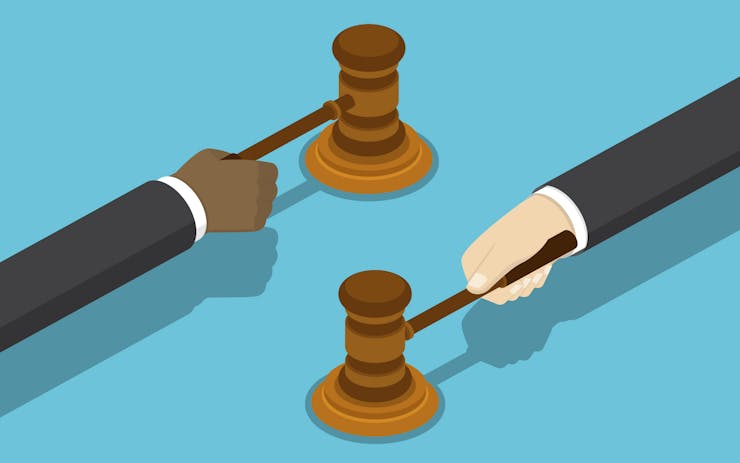More than 500 people convicted of cannabis crimes between 1996 and 2010 will see those convictions wiped away under a plan recently approved by the Seattle Municipal Court. It’s the latest example of evolving criminal justice policies in the era of legalization.
It was an unusual request when Seattle City Attorney Pete Holmes’ office filed the motion in April. Holmes asked the court to vacate the misdemeanor convictions, which are primarily for simple cannabis possession. The move was a rare example of cooperation between prosecutors and public defenders. It was also sweeping in scope, estimated to affect the criminal records of up to 542 people.
“I think the parties would agree,” Seattle Municipal Court Judge Adam Eisenberg said at a July status conference, “this is an extraordinary motion.”
What's on the Menu, Seattle?It was also an immensely complicated one. All seven judges on the Seattle Municipal Court considered the motion. At the July status conference, none of the judges seemed to oppose the plan in spirit, but they did pepper prosecutors and defense attorneys with questions about, in the words of Presiding Judge Ed McKenna, “how the bench can legally and procedurally address the interest of justice.”
Vacating the convictions happens automatically. Individuals affected don’t have to lift a finger.
In other words, the judges wanted to vacate the 542 convictions—but they weren’t sure they were allowed to.
For one thing, the hundreds of people whose records will be affected never once appeared in court. That raised a question of consent: Did all those people actually want to have their records cleared? What if, as some judges worried, doing so would deny them an opportunity to seek the vacation of other, more serious convictions? Judges also raised concerns that the move could cause immigration problems for noncitizens—an issue the city attorney’s office said it carefully vetted.
I’ve never heard a judge apologize to parties for asking tough questions, but that’s exactly what Presiding Judge Ed McKenna did at the end of today’s hearing. “The court is struggling with some of the issues,” he acknowledged.
— Ben Adlin (@badlin) July 20, 2018
Many questions stemmed from an unusual provision of the motion: Vacating the convictions happens automatically. Individuals affected don’t have to lift a finger.
Unlike in California, where individuals with cannabis convictions can currently petition the court themselves—which requires time, money, and often a lawyer—Seattle’s recently approved plan will erase past convictions automatically. (A bill to make expungements happen automatically is currently on California Gov. Jerry Brown’s desk.)
Under the court’s Sept. 11 order, the city attorney’s office will provide the court with the last known address of each affected defendant. The court will then mail a notice to the defendants, giving each the opportunity to object to their conviction being vacated or ask for their case to be considered individually. If individuals don’t respond within 33 days of the notice being sent, their convictions will be vacated automatically.
The city attorney’s office expects the process to wrap up in mid-November.
“524 people have criminal records for holding something we can buy in retail storefronts today,” City Attorney Pete Holmes, who was among the first to buy legal cannabis after Washington passed I-502 in 2012, said in a statement this week. “In two short months, thanks to our Seattle Municipal Court judges, those convictions will be history.”




